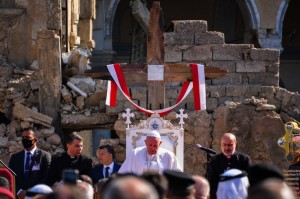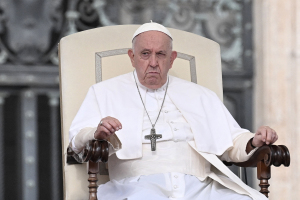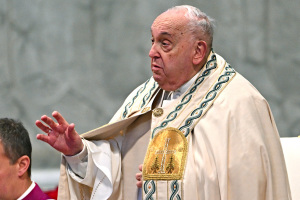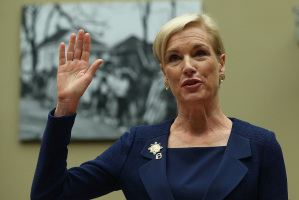Whose Bomb Will It Be: Bibi's or Barack's?
A two-hour Oval Office meeting Monday between President Barack Obama and Israeli Prime Minister Benjamin "Bibi" Netanyahu has set the stage for what will likely be one of the most important foreign policy decisions in the next year – whether or not to militarily strike Iran to remove its nuclear weapon capability.
Obama wants more time to give diplomacy, economic sanctions and international pressure a chance to convince Iran to stop their nuclear program. Israel has only a small window of opportunity at which it can strike Iran by itself. Since only the United States has "bunker buster" bombs, once Iran's nuclear facilities have been buried under ground Israel would have to rely upon the United States to come to its defense if Iran were to try to build a nuclear weapon. Whether or not Israel strikes Iran, therefore, depends mostly on the degree to which Netanyahu trusts Obama.
At a press conference after their meeting, Obama emphasized finding a diplomatic solution while Netanyahu emphasized Israel's right to defend itself.
"I know that both the prime minister and I prefer to resolve this diplomatically. We understand the costs of any military action," Obama said.
"I believe that's why you appreciate, Mr. President, that Israel must reserve the right to defend itself," Netanyahu said.
Later that evening, Netanyahu spoke at the conference of the American Israel Public Affairs Committee (AIPAC), one of the most important Jewish advocacy organizations in the United States. He again emphasized Israel's right to strike Iran if it is deemed necessary for survival.
In a reference to Jews during the Holocaust, Netanyahu said, "Never again will the Jewish people be supplicants. Never again. We deeply appreciate the alliance between our two nations, but when it comes to Israel's survival, we must always remain the masters of our fate."
When Obama spoke at the same conference on Sunday, he affirmed Israel's right to defend itself, and that all options are on the table, including military action, to prevent Iran from acquiring a nuclear weapon.
At a Tuesday press conference, Obama reemphasized that economic sanctions and diplomacy have been working, and he wanted to "see if this can be resolved in a peaceful fashion. So, this notion that somehow we have a choice to make in the next week, two weeks or month, or two months, is not borne out by the facts."
The decision on whether or not to strike Iran will also be made in a presidential election year. Three of the Republican presidential candidates, Mitt Romney, Rick Santorum and Newt Gingrich, have argued that Obama needs to take a tougher stance with Iran. The fourth candidate, Ron Paul, has argued that the United States should not involve itself in the affairs of Iran or Israel.
At his Tuesday press conference, Obama accused his Republican critics of having "bluster" and being "casual" about a potential conflict with Iran.
"Those who are ... beating the drums of war should explain clearly to the American people what they think the costs and benefits would be," Obama said.





























